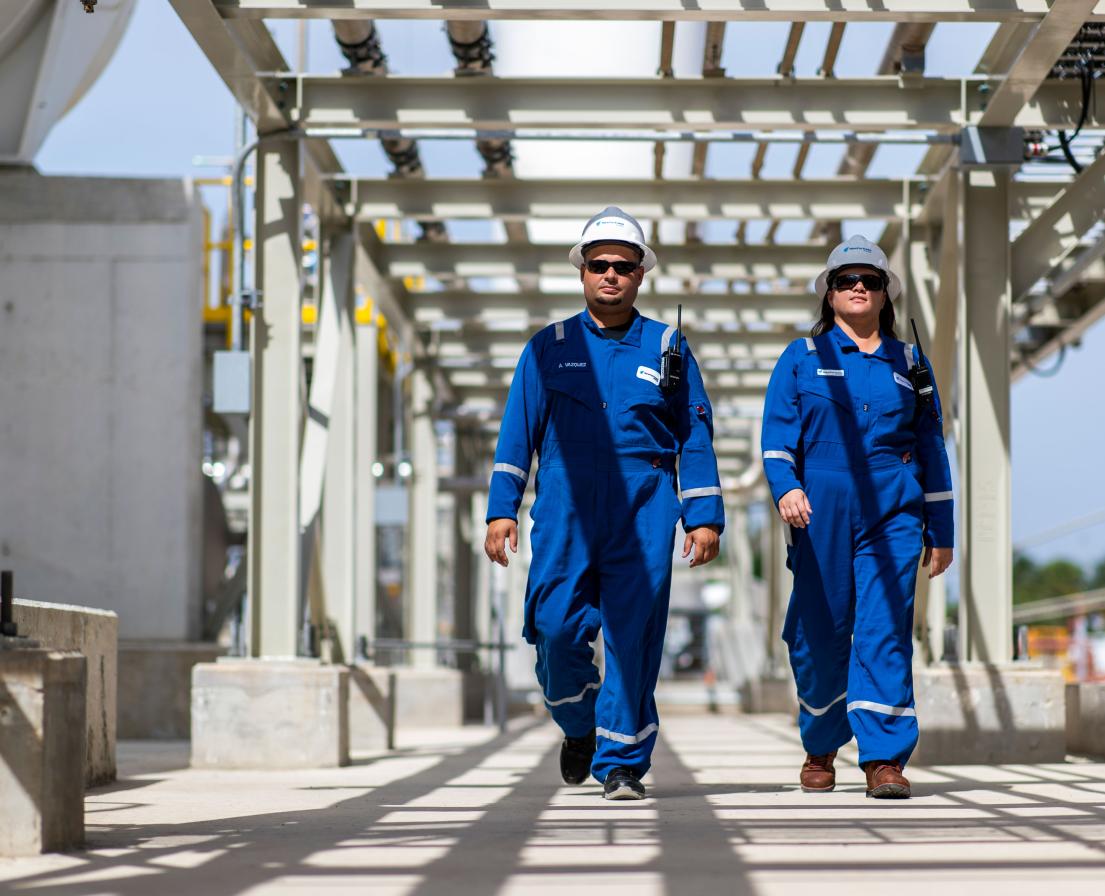Launching Zero: Wes Edens on Hydrogen
HYDROGEN
Zeroing in on
zero-emission hydrogen
Our founder, Wes Edens, has laid out an aggressive zero emission goal for New Fortress Energy. He sat down to answer some questions about the newest division of NFE, Zero, and why he believes hydrogen is worth pursuing. Read on to learn why we're going from low carbon to no carbon!

Q: Why did you decide to start this new division of New Fortress Energy?
A: Our mission has been simple from the start. We want to reduce emissions and increase access to power across the world. We’ve been very successful building LNG infrastructure and bringing a cleaner, more affordable fuel to our customers in markets that are reliant on heavily polluting oil-based fuels. We’re making a positive economic impact while reducing emissions. But, that is not enough.
With humanity facing an existential crisis in climate change, we need to quickly move from low-carbon to no-carbon. That’s why we created Zero, to focus on making our company the leading provider of zero-carbon, zero-emissions power around the world.
Q: Why the focus on hydrogen versus other clean energy technologies?
A: I firmly believe hydrogen is going to play a major role in a zero-carbon energy landscape. It just makes so much sense. It’s the most abundant element on the planet and largely can work in all the same ways fossil fuels can for power, transportation and other industries. It’s simply a matter of lowering the cost of hydrogen, or implementing a true carbon tax, so that it can completely displace fossil fuels. And it makes incredible sense for us to be at the forefront of it, given all of our experience with energy infrastructure, power, logistics and financing. The untapped potential is tremendous.
Q: Isn’t it too expensive today to really displace fossil fuels?
A: It’s true that zero-emission hydrogen production costs range between $2.50 and $6 per kilogram today. That’s the cost of electrolysis – which uses electricity to separate water, H20, into hydrogen and oxygen. The high cost can drop quickly due to the cost of renewable electricity, which continues to rapidly fall. We’ve seen costs for solar drop nearly 90% and wind drop 40% in the past decade. With renewable energy continuing to get cheaper and more applications for green hydrogen emerging, costs will continue to fall.
What we really need is $1 per kg green hydrogen, which is roughly equivalent to around $7 MMBtu natural gas. If you can get the cost of making green hydrogen to $1, you’ll beat gas and diesel for just about every application. I believe for real sustainability to be achieved, you also need profitability.
Q: Don’t you need a lot of renewable energy to produce enough hydrogen for it to truly displace fossil fuels?
A: That’s true. But many people are thinking about renewables in a limited way. Many people don’t understand that a solution already exists to store renewable energy as a fuel that can replace all polluting fossil fuels – green hydrogen. We don’t have to be afraid of overbuilding and curtailing solar or wind, that should be seen as a way to produce hydrogen. It’s far more scalable than batteries and I believe storage and transportation advances will come quicker than people expect. Over time we’ll realize the demand for renewables is far greater than we expected, because we’ll need it to make green hydrogen for power plants, steel making, fertilizer making, ship fuel, and everything else.
Q: What are the next steps for division Zero and NFE with hydrogen?
A: We plan to have our first zero-emission hydrogen pilot project up and running this year. There are applications for hydrogen that we can deploy very quickly with many of our smaller-scale, industrial and transportation clients to gain experience. The next step will be to step up our scale, and become one of the first companies to use green hydrogen to provide power.
Our longer-term goal for NFE is to become the world’s largest independent power provider and to do it with zero-carbon power. And we’re going to focus on beating everyone’s expectations and try to get this done in the next ten years.
That may sound overly ambitious. But this is a deeply personal mission for me and one I want everyone in our company to share. We want to provide our children with the chance of inheriting a planet that resembles the one we were lucky enough to enjoy growing up on. The failure to properly address climate change is having staggering consequences -- wildlife extinctions, rising oceans, climate refugees, extreme weather are just a few. We truly believe renewable hydrogen could play a meaningful role in rewriting the energy landscape globally for the better – so that’s why we’re setting our aim high.
